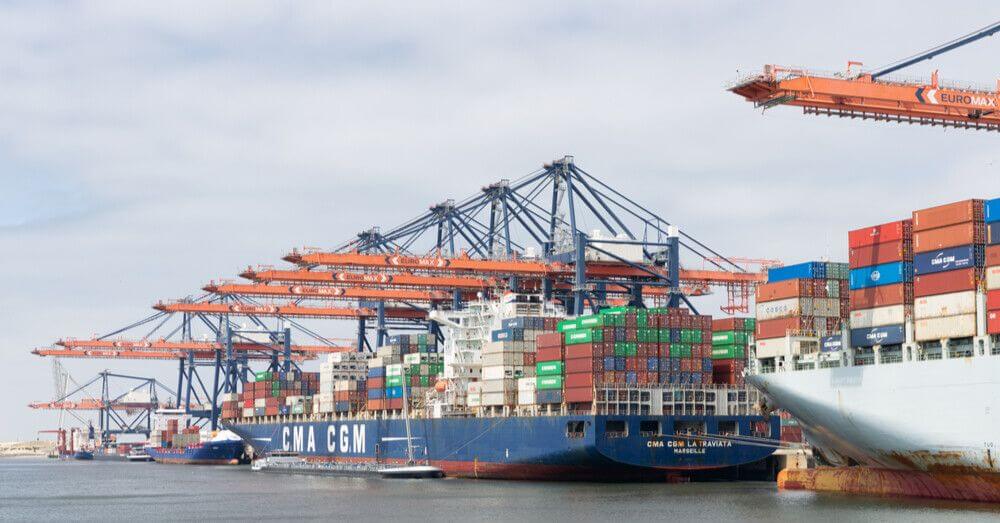
The solution will allow all the entities involved in the supply chain to seamlessly share data with each other
Portbase, a Dutch logistics solutions provider, has successfully completed the first phase of their integration with TradeLens, a blockchain-based platform. The two companies will be responsible for handling operations and core processes for ports in Amsterdam and Rotterdam.
TradeLens and Portbase are working together to create a worldwide ecosystem of carriers, ports and terminals using a digital port infrastructure management system. Moving forward, the system will receive upgrades through TradeLens’ blockchain infrastructure.
The first phase of the project, as explained in an announcement, has Portbase sending out customs clearance messages for all Maersk containers to TradeLens.
“Collaboration between Maersk, TradeLens and Portbase provides enhanced digital offerings for shippers within Northwest Europe. In return, Portbase will receive data back from the TradeLens platform,” it reads.
The Managing Director of Portbase, Iwan van der Wolf, stated that blockchain will play a crucial part in organising the company’s operations.
“It allows all players in the logistical chain to easily, quickly, and securely share data with each other, irrespective of their mutual relationship, enhancing trade for everyone involved. Portbase acts as a data hub for global trade via the Dutch ports and facilitates the connection to regional networks in Northwest Europe.”
The TradeLens Global Authorities Leader of IBM Norbert Kouwenhoven, explained that the design they chose will allow for faster upscaling “with the click of a mouse” and can be seamlessly expanded as the scope for the ecosystem increases.
Supply chain management and logistics is one of the industries expected to be the most enhanced by the introduction of blockchain technology, particularly in the midst of the coronavirus pandemic. The need to ensure fresh food and produce, as well as to increase transparency as goods and services move from one location to another, is answered with blockchain.
In an alternative application of blockchain within the logistics industry, the Norwegian Seafood Association teamed up with IBM and Atea, a tech firm specialising in the internet of things (IoT) solutions, to create a track and trace system based on the blockchain. This project aims to help consumers track the provenance of sustainable farmed salmon in Norway.
FedEx, an American courier delivery services giant, joined the Hyperledger project on 2018. Hyperleger is an open-source project that was established to improve cross-industry blockchain technologies.
Fedex joins over 270 members in the project. Other notable member companies include JP Morgan, Intel, IBM, and Deutsche Boerse.

